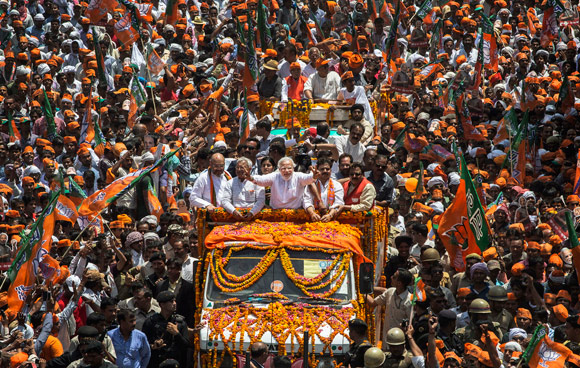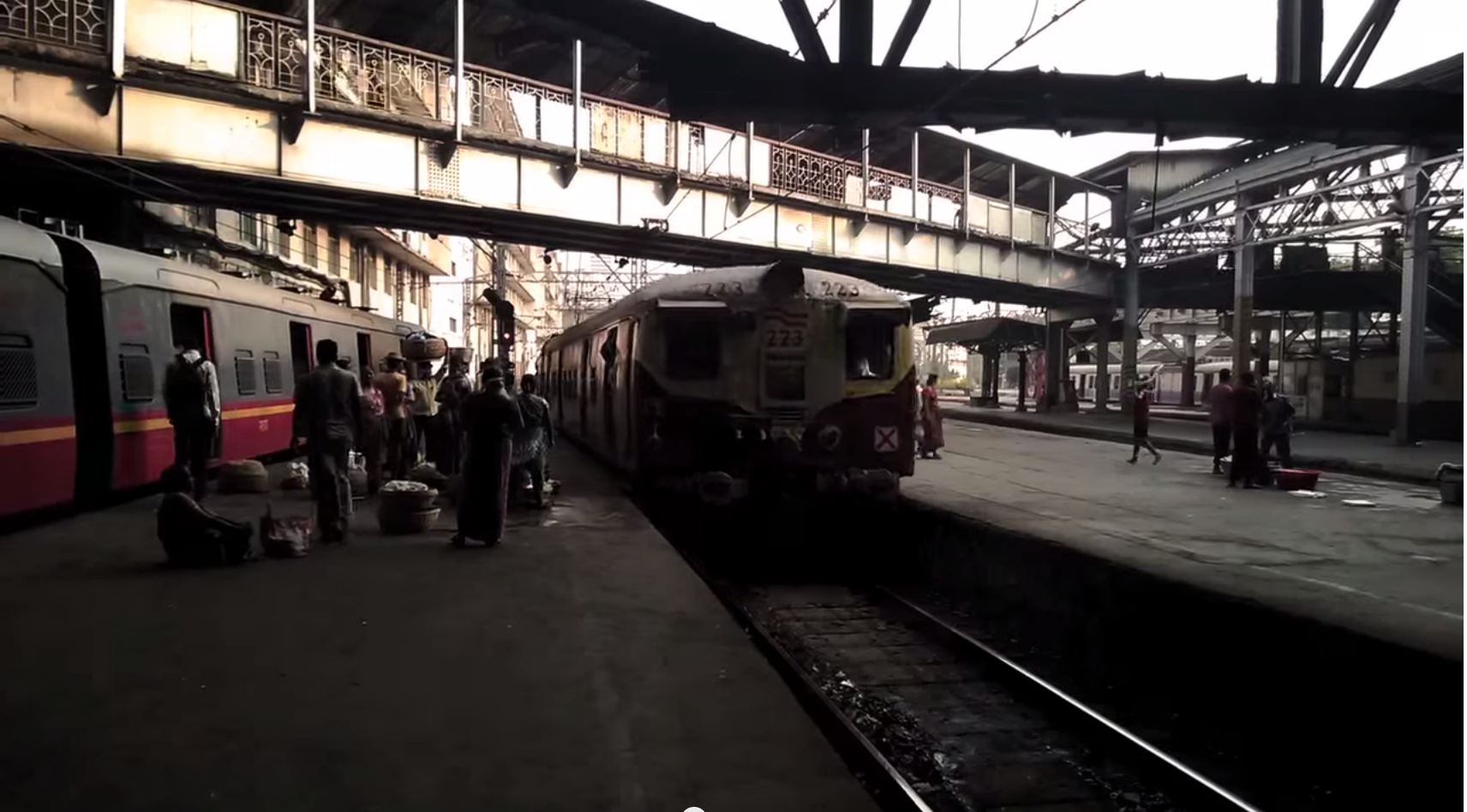What Does Modi's Victory Mean?

As the world’s biggest democratic exercise in 5 years came to an end, India’s voters chose a Hindu-Nationalist, pro-business politician to be their next prime minister, tossing out the party that has led the country for most of the past 67 years. Narendra Modi’s Bharatiya Janata Party (BJP) won 284 out of the 543 seats in the parliamentary house, which is the first time in 3 decades that a single party has captured an outright legislative majority. The congress, India’s oldest party, was routed from its position of power.What looked a few weeks ago like a mere dramatic change of government now appears to be a seismic shift, arguably the most significant in India since 1977.With a historic win under his belt and ambitious plans favored by the majority of Indian citizens, Mr. Modi has been entrusted with the responsibility of leading the largest democracy from economic sluggishness to great prosperity.
The vote amounted to a surprisingly broad repudiation of Congress’s welfare-focused approach to policy making and an endorsement of Mr. Modi’s call for more effective governance and business-friendly measures to create jobs and opportunity. Mr. Modi’s policies will have the greatest impact on the economic sector of India. The past 60 years have proven that economic growth is the only palliative for alleviating India’s social, economic, and political problems.
With poverty proliferating throughout society, illiteracy waging havoc upon India’s future, and unemployment afflicting a majority, it’s imperative that Modi starts with improving India’s economy. A prerequisite to improving India’s economic situation is having an appeal to the common man. Without the support of the middle and lower classes, it’s impossible to implement policies that favor economic growth. Modi clearly has connected with the common man of India; Mr. Vijay Thakur, a taxi-cab driver said, “Modi will change India 100%. He will bring rapid development, he will bring foreign companies to India, and everyone will have jobs.”
Although Modi will have a great impact on India domestically, his rule will have far reaching implications beyond India’s borders. The BJP, based on past speeches made by Modi, would prioritize trade and investment with foreign countries. Modi will likely pursue increased trade-led ties with the EU through ongoing free trade negotiations. On the U.S. front, support for a strong strategic relationship has held across all parties. Congress promised greater integration with the global economy, but disappointments in its recent term have resulted in friction. Many analysts assess the BJP as more focused on economic reform and trade, and see the party as likely to rekindle a positive economic spark with the U.S.
Another issue that has a major effect on India’s future is Pakistan. In general, the BJP is seen as tougher on the issue of terrorism when traced to Pakistan. Many agree that this is attributed to Modi’s nationalist mindset. Modi has vowed to secure India’s border and strengthening India’s counter terrorism capabilities. Sri Lanka and Bangladesh are also likely to be the focus of regional state politics. Modi has continued to express his nationalistic goals and has made it clear that he will not accept any encroachment upon Indian Territory.
China has also been on the forefront of foreign policy focus in India. Modi recently advised China to shed its expansionist attitude. Modi spoke out against China’s recent encroachment upon Indian Territory and explained that the world has changed and an expansionist mindset will not be acceptable. “I swear in the name of this soil that I will never allow the state to disappear, breakdown and to bow down,” Modi said. Evidently, Modi will have greatly improved India’s stance in the international stage and will increase India’s credibility and legitimacy as a global superpower.
In spite of Modi’s great support and his promise of economic prosperity, most worrying for Modi’s critics are fears that his rise could worsen sectarian tensions between India’s majority Hindus and its Muslim minority. For much of the last decade, Modi has been haunted by allegations that he did nothing to stop communal violence in his home state of Gujarat that killed 1,000 people.
However, Modi’s critics are in for grim news. For one, this charged election passed with barely any violence at all. For another, Modi did not win by being the demagogue that, in the past, he often appeared to be. The fundamentals of moderation and accommodation that undergrid Indian politics compelled him to reach out to Muslims and to talk about building the economy rather than building a temple.
The best outcome for India will come to pass if Modi is now forced to live up to the image that he has projected for the past year. It would not necessarily exonerate him of past sins, but it would be the reward that India deserves for having poured itself so unreservedly into this election.
Image Attribute [The New Yorker]




